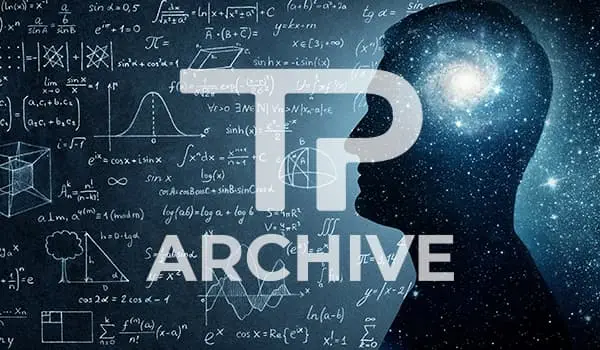
NATIONAL SEMINAR THEORETICAL HIGH ENERGY PHYSICS (March 2022)
- Date:
Friday, 18 March
- Speakers:
Chiara Toldo (UvA); Subdoh Patil (LEI); Gideon Koekoek (UM); Andrea Pelloni (Nikhef)
- Location:
Nikhef room Z011
We are delighted to announce that due to the lifted corona restrictions the next edition of the national seminar THEP on Friday March 18 will take place in person. The talks will be in room Z011 at CWI/Nikhef and the program will run from 10:30am to 3:30pm, followed by a “borrel”. For those who want to follow the talks online, a webcast is available at: https://go.nikhef.nl/colloquium.
- Schedule:
The schedule is as follows (titles and abstract below):
10:00 Coffee/tea
10:30 Chiara Toldo (UvA)
11:15 Subodh Patil (LEI) (Nikhef colloquium)
12:15 Lunch
14:00 Gideon Koekoek (UM)
14:45 Andrea Pelloni (Nikhef)
15:30 Borrel/drinksChiara Toldo (UvA) – On the search for composite black holes in AdS space
Abstract:
While multicenter black holes in asymptotically flat space have long been object of study, the construction of multi black holes geometries in Anti-de Sitter spacetimes remains so far elusive. Working in the probe approximation, I will show that there exist stable ad metastable black hole bound states in compactifications of M-theory on 7-dimensional Sasaki-Einstein with AdS4 vacua. I will discuss various features of these setups, including their thermodynamics and their relevance for describing glassy systems, and “caged wall crossing” phenomena, making connection to recent developments regarding microstate counting via supersymmetric localization in the dual CFT3. I will moreover discuss the state of the art and recent progress regarding the search for five dimensional composite black hole solutions, including AdS5 black rings and black Saturns.Subdoh Patil (LEI) – Spectral Distortions of the Cosmic Microwave Background (for Particle Physicists)
Abstract:
One of the most striking confirmations of big bang cosmology was the detection of relic radiation with an almost perfect black body spectrum. Almost. Within the standard cosmological model, one expects to find small departures from a black body spectrum — spectral distortions — that directly probe any energy release phenomenon in the early universe before recombination which didn’t have time to sufficiently thermalize. As such, spectral distortions not only offer a probe of the thermal history of the Universe, but also a number of scenarios of interest to particle physicists. These include the decay of long lived particles, (dark sector) phase transitions, topological defects, the presence of axions, and a range of other exotic beyond the Standard Model scenarios. Furthermore, spectral distortions offer a means to constrain stochastic backgrounds of gravitational waves at scales inaccessible to other probes. In this talk, I will review the basic physics of spectral distortions of the cosmic microwave background, what one can hope to learn from it if you’re a particle physicist, and offer an overview of current proposals to measure them with the next generation of space based observations.Gideon Koekoek (UM) – Measuring electromagnetic barriers around black holes by gravitational waves
Abstract:
Compact heavy objects, such as black holes, quasars, and neutron stars, are well-known to allow electromagnetic fields, either of intrinsic or extrinsic origins. Measuring and quantifying such fields tends to be challenging due to the complicated interplay of electromagnetic and gravitational effects. In this talk we will discuss a possibility to quantify the electromagnetic field around a binary system of inspiraling compact objects exclusively by gravitational wave (GW) measurements of a system of inspiraling compact objects.We will show analytical solutions to the Einstein-Maxwell equations for both spinning and non-spinning charged compact objects and for their charges being both intrinsic as extrinsic, allowing for different formation histories. From these, we will discuss that the characteristic GW frequency at the moment of start of the plunge (the so-called chirp frequency) can shift by a significant amount that, in principle, could be detected by current-day and future gravitational wave detectors and would allow a direct GW-measure of the electromagnetic field. Finally we will apply these results to binary systems of 10^1 to 10^3 solar masses, and discuss the measurability for LIGO/Virgo, LISA, and the upcoming Einstein Telescope. Future opportunities will be pointed out to merge these GW-results with electromagnetic measurements as a means of further quantifying the electromagnetic fields around compact objects.
Andrea Pelloni (Nikhef) – Deep inelastic scattering using differential equations: Probing 4-loops
Abstract:
We are currently witnessing rapid development and increased accuracy of QCD observables in an ultimate effort to test the Standard Model (SM) and expose new physics in the forms of deviation from the theory. To be able to make theoretical predictions we must understand the parton distributions and how they evolve at different energies. In this regard, Deep Inelastic Scattering (DIS) represents an extremely interesting channel. The computation of its structure functions can be tested across a range of energies with high accuracy and provides vital information for the evolution in the distribution of partons within a proton.We are computing the N3LO structure functions for DIS and in the process of checking the currently available expressions for the splitting functions, and at 4-loop we are focusing our efforts on the non-singlet sector (in particular n_f^2 and C_f^3n_f). Our approach consists of the determination large number of Mellin Moments, allowing for the reconstruction of the structure functions. This expansion is performed at the level of master integrals and through a novel system of expansion via differential equations. This method allows us to extract up N=1500 for the $n_f^2$ contribution at N4LO.
- Local organizers:
For questions or suggestions, please contact one of the organizers:
Wouter Waalewijn (NIKHEF)
tel: +31 (0)20 5255773
e-mail: wouterw@nikhef.nlMarieke Postma (Nikhef)
tel.: +31 (0)20 5925128
e-mail: mpostma@nikhef.nlTimothy Budd (RU)
tel.: +31(0)24 3616161
e-mail: T.Budd@science.ru.nl